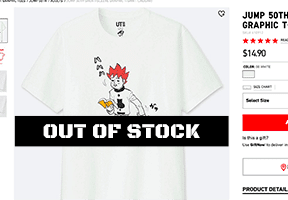Out-of-stock product pages have long been a dilemma for search engine optimizers.
It’s tempting for merchants to remove those pages and focus on available inventory. But the pages are indexed in Google and likely generate organic traffic, especially if they have backlinks. Shoppers will land on those pages, looking to view the products.
Thus merchants need to benefit from the clicks while ensuring visitors have a good experience.
As a rule, never:
- Return a 404 error. This will force most visitors to return to Google’s search results.
- Redirect those pages. Redirecting will preserve traffic and link equity but, more importantly, will confuse visitors.
Typically, the best tactics are:
- Keep the pages live and indexable,
- Ensure both humans and search engines know those products are out of stock.
Retain Live Pages
Keeping the pages live preserves clicks and drives alternative product sales and email subscriptions. Moreover, live pages recover traffic quickly when the goods become available.
Thus:
- Offer to notify visitors when the product is back in stock.
- If the item is permanently discontinued, link to closely-related goods with a similar search intent. Shoppers coming from organic search likely queried a long-tail, highly focused need. They know what they want.
- Reduce the price of the related items if necessary. The key is retaining a long-term customer.
Communicate Status
Transparency is the best policy for both shoppers and Google. You’re bound to lose sales, so minimize the disappointment with candid communications and expectations.
- Make it obvious that the product is out of stock.
- Consider implementing the ItemAvailability property in Product Schema to set options such as OutOfStock and SoldOut. Google may show these statuses in rich snippets, which would reduce clicks, but searchers who do click would have the proper expectations.
- Remove links to product pages from the main navigation, sitemaps, product feeds (to marketplaces, ads, affiliates), and related product lists. If the item is permanently unavailable, remove the page from all internal links and from site search.
Exceptions
Certain out-of-stock scenarios have no easy solution. For example, pages for products that go in and out of stock frequently may require noindex tags to avoid confusing Google.
And keep in mind that Google is slow to react to your site’s changes. Avoid frequent disruptions such as on-and-off redirects, back-and-forth 404 errors, and similar. Keep things stable for SEO.
Regardless, focus on shoppers. They are the priority.




